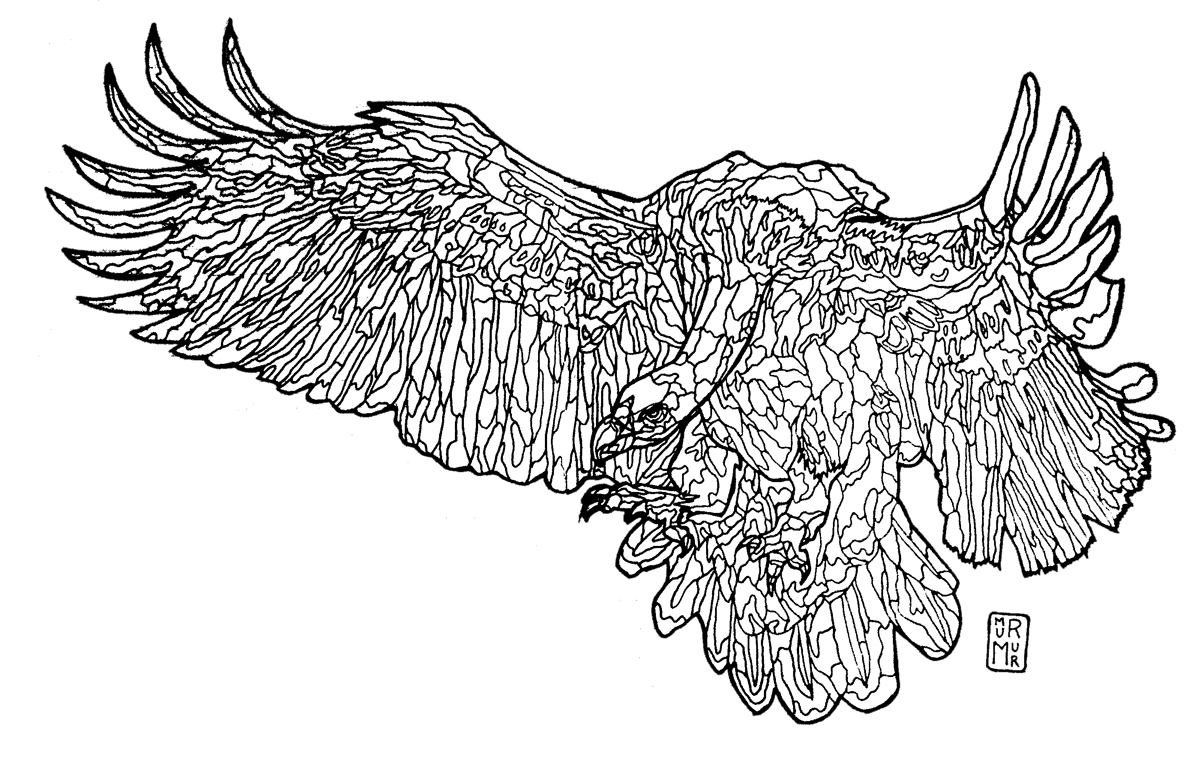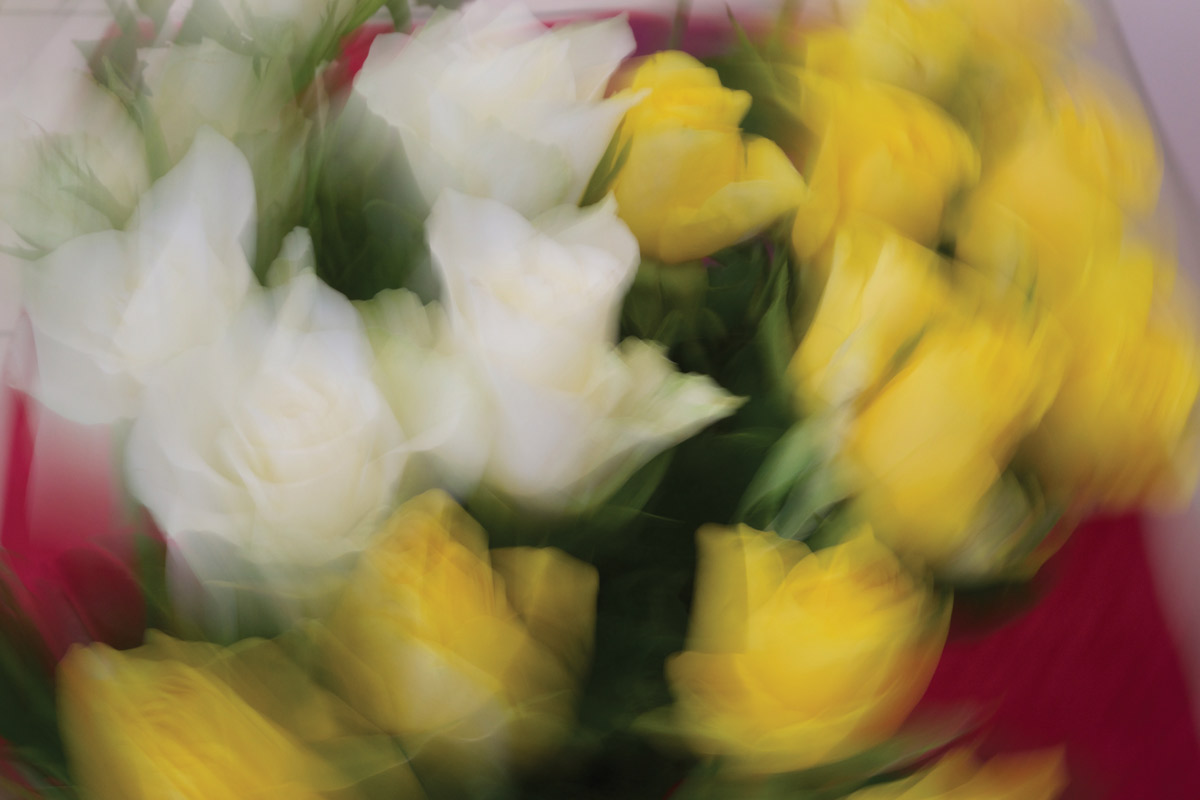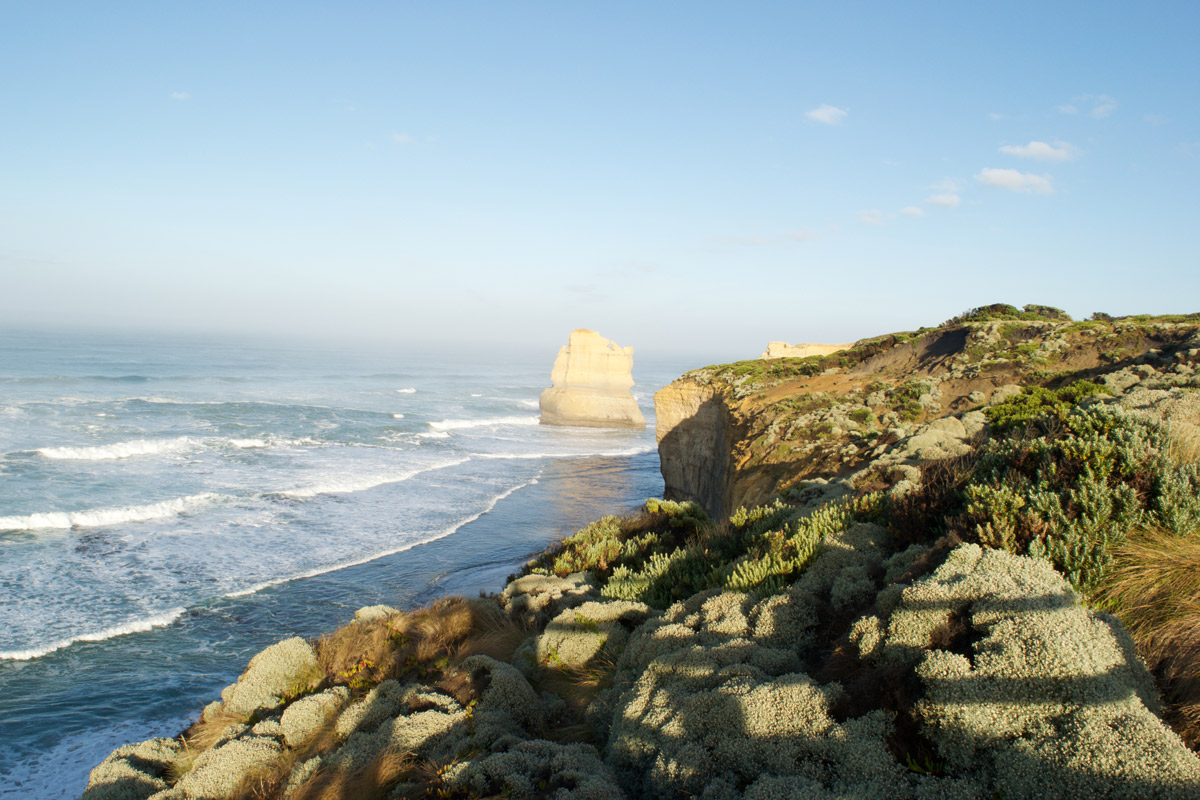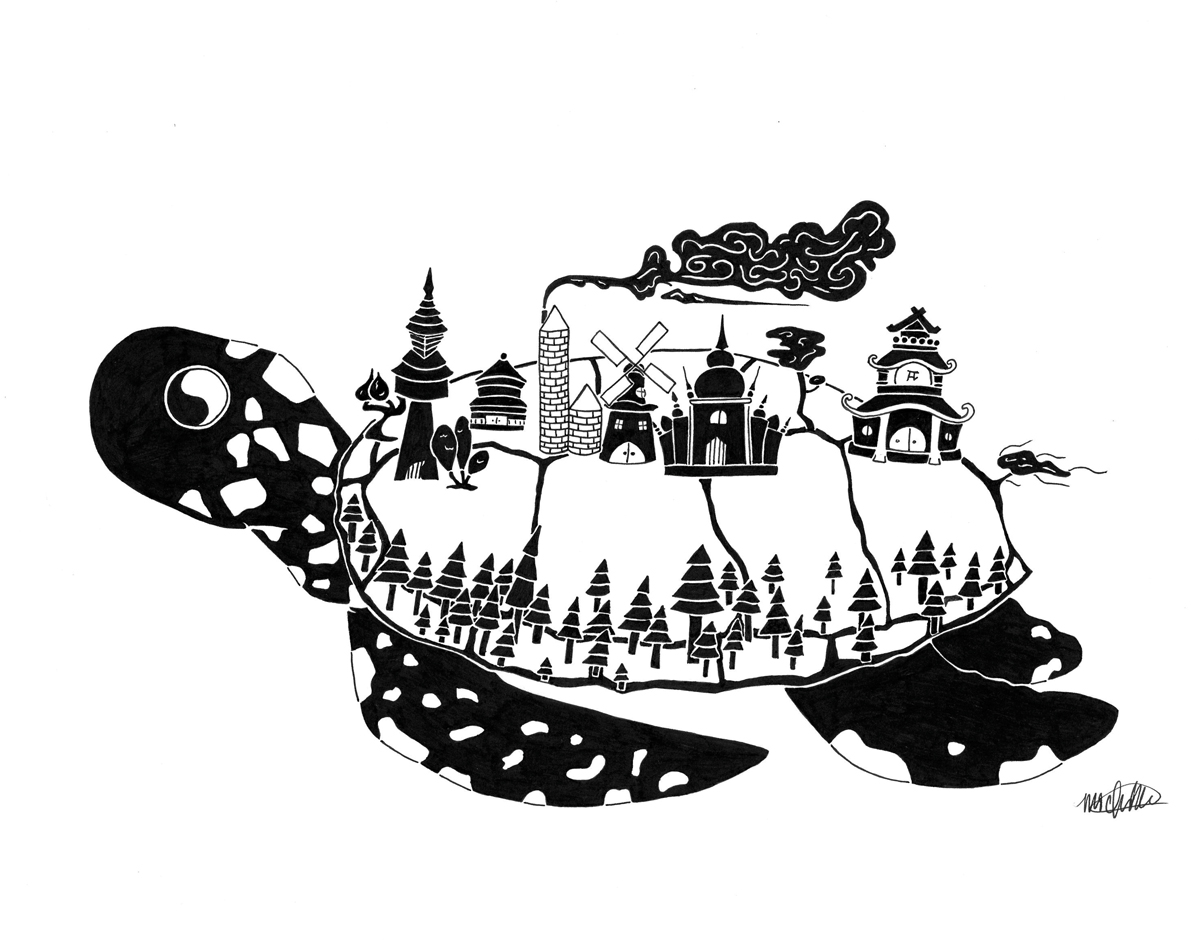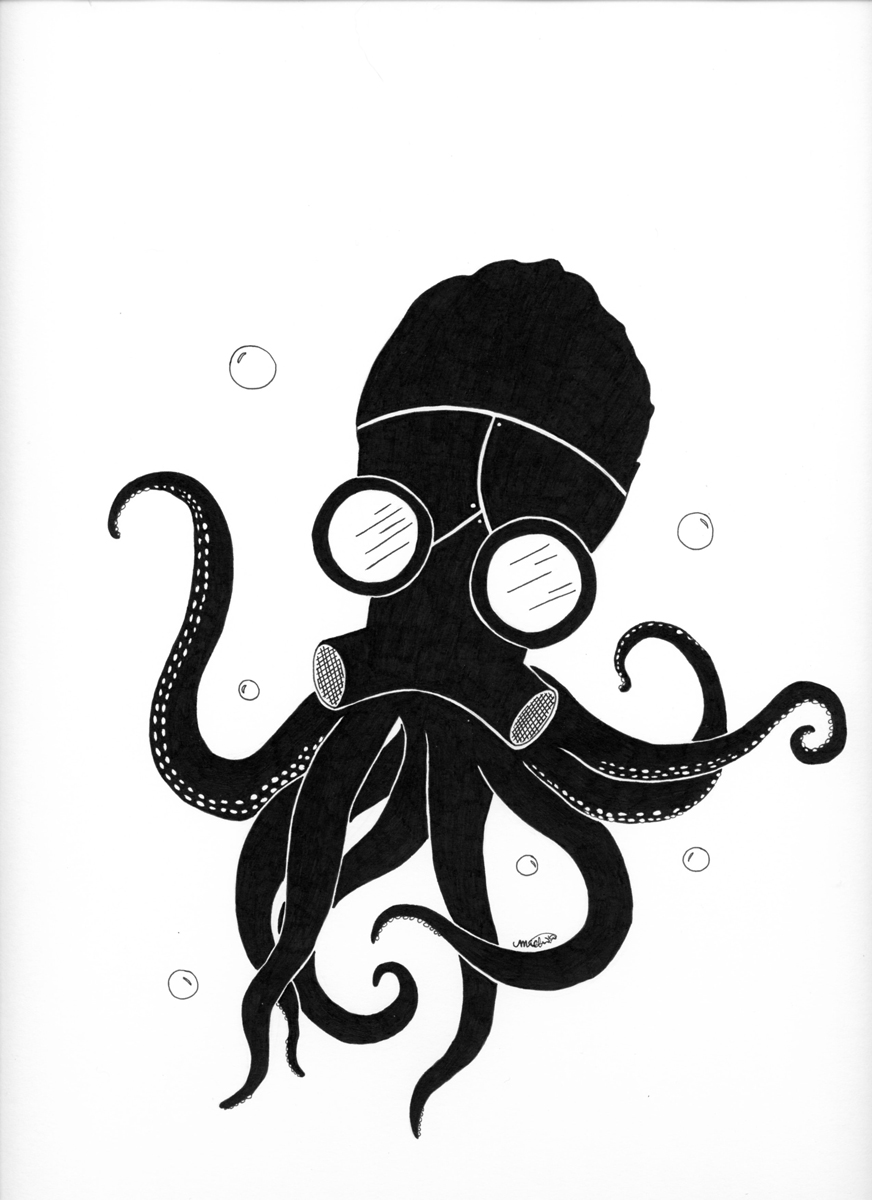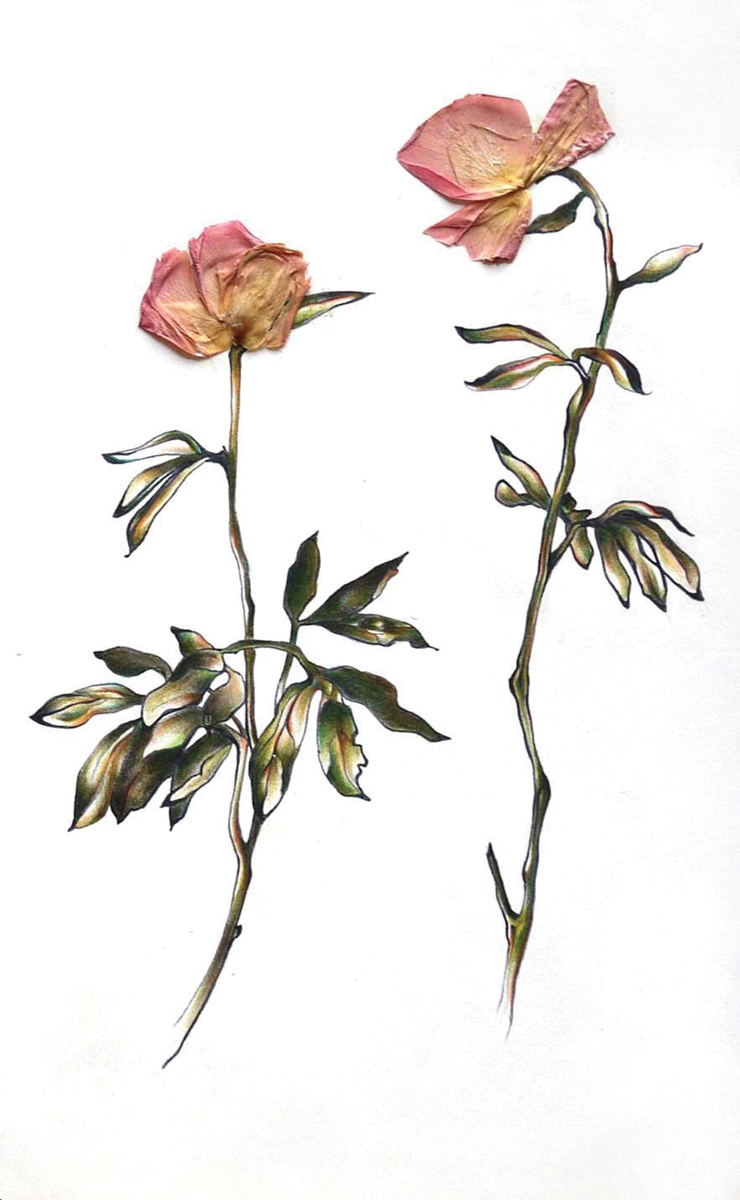Creative Supplement edited by Evelyn Goessling
IN SANTORINI, MAYBE FRANCE
Shelley Lin
I kiss your neck.
The sun winds
slowly up white brick wall, fresh and bright, and
sand, blowing lightly through the streets,
and berries, staining teeth and lips and bottles, bottles
of sangria. The motorcycles outside, the gold sunset, slowly hum
as the boys fell into the sea.
Arcs of water with light, rushing
white bubbles when you land,
plunge into the cool deep, blue
Wet hair flicking, over
tans eyes laughing.
We eat grapes, chill and wet, your mouth
walking me home.
The sweet sleep of swimming,
rise over my limbs
Cover me
I walk through the fields they fought the wars in
Take the white bedsheet and
upwards it floats
suspended swan in your hands
land on closed eyes
so they can be at peace again
The songs in the air are still, are again
walking you home
I see you when my eyes are closed
your voice, trebles, or made of mustard gas
In my head or in yours.
I lost count a long time ago
which one was which
To die in flower or to die in sleep
To cry for your loved ones or fight for your keep
What is a life? And where does it go when you take it?
Whose war is it? And what does it take, to get what is given?
Flanders fields are soft and red in May.
Come back,
you, my homeland
back to me
In memory of soldiers, who died at war.
In memory of citizens, who died at home.
In memory of every haunted life,
Taken or left behind.
The philosophy of Tea
By Rohan Chakrabarty
“Every sip has a philosophy”, she said suddenly
Biscuit inches away from my open mouth, “Sorry?”
“Every sip you take has a meaning”, nodding wisely
Still clueless, beads of saliva coalescing in anticipation
“I don’t understand”, I mumbled impatiently
“Tea is an embodiment of the entire universe”,
Shaking my head, I grunt at the sogginess of the biscuit
The steaming opaque reflection stares back
“Every sip has a philosophy”, she repeated softly
I take a deep breath, putting on the occasional frown
Scrutinizing the calm liquid and my surroundings
the electric kettle and the tea bag, ever convenient,
a rote taste, like the cogs of my adult life
the paper cup resonating with my disposable possessions
As the warm elixir trickles down my throat,
The opaque reflection stutters amongst the ripples
“Every sip has a philosophy”, her eyes spoke silently,
My hands mechanically moves towards my lips,
Markings on the paper wall descends effortlessly
I reflect on the residues settling at the bottom
Like memories heaped in the corners of the mind
A gentle stir, an aroma fervently rising from within
A clash, the laughs, the feeling of togetherness, a loss
The opaque reflection stares anxiously
“Every sip has a philosophy”, she smiled
Tilting the cup, embracing the known.
I nodded eagerly, “I know”
The Epic Tattoo
Rebecca Dillon
What great epoch straddles the world of art
When paintings become the veneer of skin.
The antipode of fugacious heart,
To mark the enduring dolphin on your shin
Let sacred muse of tattoo’s bliss come start
The outline of fine ink below Pablo’s chin
It started dark one afternoon in June,
That day became his passion and his ruin.
Fair Margaux’s work coalesced into faith
People swear in her chair and in her skill.
By Jove’s will Pablo appeared, a fine wraith
On quest for sainted art he must fulfill,
“Hugh Hefner garbed in red robe” he cried, chafe as
She needled him into a chair—Stay still!
Her goal to open his mind and his wallet,
Fulfilled with a scream and salt tears from a faucet.
She began with his collar, red with blush,
Drunk on her beauty and tequila he held
A jar confined tempest, some bees in a brush
As she reached his neck hollow, divine curses he yelled
Her ruined hopes and mascara, her flush
Her fury raged, from composure, rebelled
Leave Monet lilies blank, Brahms timber unstrung
Before her true genius would be left unsung.
Her agon thus began, elysian fire
Rang through her hands and rent through quick his brain
She calmed his panic, made his sight less dire,
And hand in hand they strode through all his pain.
Her hands dripped red from hours with dye and her
Oaths fumed in spires, Pablo felt disdain.
He couldn’t comprehend this grumbling wench,
He hadn’t realized she spoke only French.
But Pablo dreamt of art’s creation true,
The Parlour, vessel for vast majesty
Great sails, through seas of momentous art, wide blew
Towards the cosmic ken, imagined he.
So given liberties was she, in lieu
Of checking her grasp of his tattoo of Hugh,
He let her take the helm, more or less,
Robe is robe in English, but in French—a dress.
Oh high humoured beings who fated this tryst,
Your irony mastered from sovereign height
Moves one to supplicate to faith as Eutheist,
For Margaux knew well Hugh’s misogynist blight
And did not question Pablo’s choice while pissed,
So inked to his stubbed neck, dressed in a red, bright
Gown, Hefner was in permanence painted
When he saw it, Pablo fainted.
[Untitled]
Rebecca Dillon
A tread thru the gallery
on a rainy afternoon.
Blossom sky of May
open eyes of blurry day
Wander down the frames and pause,
a perfect moment, captured ray
there we are in bed on Sunday.
Drinking tea you steeped too long
Captured sun sprays from the frame.
How young we look but still the same.
Here another, freshly painted.
The gallery here has it dated
—mark here August 10th—a solemn
moment, flash of time snapped, immortal
potent. Let’s shuffle and let these ppl by
Gallery hours flux in the crowd,
Ever moving, ever yawning, every loud,
Always intent and detached like photo-plastered
face—“Oh”—and squint at the moment we
embraced. Driving them out—this is our own
Perfect moments don’t condone
invasions of the mindless mass
these perfect moments of our past.
Let’s all move on to a portraited Rome,
A coffee shop—so unmoving—where we met.
Savoured life in fragments weighed,
Savoured moments—lifetime made.
dam
Rebecca Dillon
Dear Cosmos, realm of pages spent,
Blank letters ripe with codes of lead,
You're our print upon the world,
Till the screen we fix goes dead,
Will pallor brought by those words,
Still simmer on our stark face?
Will Lazarus seek to rise
When existence, we erase.
Come seek the world in anguish,
Where smoke reigns upon a crypt,
No wind sighs and sings lament,
The ashes burned black the script.
Tangled in the gloried nest
Of false paper dyed with gold,
We scale rusted truth to lies
And keep that which can be sold.
Will all this typing, letters, writing
Outlast the smirking sun?
Will all this typing, sending, ending
(Finally) dam thoughts my brain let's run.
The Ivory-Billed Woodpecker
Oceane MarescalOn the second floor of an old Victorian house, in the third room to the right, Henry Jones sagged at his desk. The house, kept in pristine condition, was poised alone on a hill far from the bustling life of the nearest town. It sat regally in the emptiness, silent apart from the occasional resonating creak. The sun reflected off its shingled turrets and stained-glass windows, making the intricate, multi-faceted structure gleam like a diamond—perfect, elegant, cold. Inside, paintings dangled on ivory-colored walls and dust coated the expensive marble counters. Henry wore a lavish black suit with an extravagant crimson tie and a well-ironed shirt. His blue eyes pierced through his wrinkled face, which wore an expression of permanent irritability. This house was the fruit of his toils, the result of years of work, and his rightfully deserved prize. Yet, even with his goal accomplished, Henry felt hollow, like an empty shell. In his pale, liver-spotted hands he held a leather bound journal. Attached to the front cover was an old newspaper clipping: Rare bird sighting in Louisiana.
A painful memory, a memory that his greed and ambition had gagged and silenced, now resurfaced. Like a creeping fog, the memory invaded Henry’s mind. He tried to push it away, but he was old now, old and alone, and the memory could not be kept at bay. With sickening sorrow Henry began to read.
January 14, 1971.
It sure is cold today, but I don’t mind. I love watching the snow fall outside my window and sitting near the fireplace with Henry. He is so absorbed in his work all the time, always studying for something or another. He never has time for his little sister anymore… But it’s all going to pay off for him, he’s going to be a big-shot lawyer someday, he is. Mark my words. Anyways, I have really important news. There has been a sighting of the Ivory-Billed Woodpecker in Louisiana! I’m going to ask Henry to see if he wants to come and try to catch a glimpse of it with me. I can only imagine the woodpecker’s beautiful shiny black plumage, its red crest, and its signature ivory bill. You know, journal, it has been my dream since I was ten years old, since Daddy told me about it, to find the Ivory-billed woodpecker…
Anyways, I have to run. Until next time then,
Love, Jenny
Henry traced the words with his shriveled finger and closed his eyes. He remembered very well the day his sister had come up to him, her golden locks bouncing with excitement, to tell him that the famed ivory-billed woodpecker had been seen somewhere in Louisiana. He had been scratching away at a law school essay at the time and had only half-listened to her babbling until he heard her say, “Henry? Henry, could you come down to Louisiana and see it with me?” He had promptly refused; missing a week of law school would end all chances of him finishing at top of his class. He had chosen work over family, work over dreams. Henry opened his eyes again and kept reading.
January 15, 1971.
Henry said no. Henry is busy. Henry doesn’t want to come. I don’t understand. I miss the old Henry… He went off to college one day, and when he came back he was never the same again… I practically had to rip his textbook out of his hands to get him to attend Daddy’s funeral. There has to be a way to get the old Henry back. Journal, can you keep a secret? I’m going to buy two tickets to Louisiana anyways, it’ll be a surprise! I’m sure that Henry will change his mind. I know it. He loves the ivory-billed woodpecker too! The way Daddy used to talk about it, Henry was entranced. “The ivory-billed woodpecker is beautiful, unique and exceedingly rare.” Daddy used to say, “it is so fragile: only a few steps away from extinction. One day we’ll all go look for it, together.”
Those memories are tough. I guess that’s it for today.
Love, Jenny.
Jenny had always reminded Henry of the rare bird. At twenty, she was young, beautiful, innocent, unique and rare, but at times so fragile in her own way. All that mattered to her was Henry, her only family, and the ivory-billed woodpecker, her only dream. All that mattered to Henry was money, and Jenny never understood that. When Henry still refused to go with her a week later, Jenny had fled the room in tears. To her, the Ivory-billed woodpecker meant hope, hope of restoring her family. Henry had crushed that hope.
January 22, 1971.
I hate him. I hate Henry. How could he choose law school over the ivory-billed woodpecker? Over me? Well, I don’t need him. I have gone to pursue my father’s dream, my dream, on my own. I will search every inch of the Louisiana Basin until I find the bird, and then I will never talk to Henry again.
Jenny.
Henry blinked several times as a tear slid down his cheek. He had made a choice that day. He had chosen not to take the plane, to abandon his Ivory-billed woodpecker. He had chosen to stay in school; he had chosen wealth, materialism, emptiness. He had chosen wrong. Henry never saw his sister again. Shortly after writing her last journal, Jenny disappeared into the Basin and had never been seen again. There were no more sightings of the Ivory-billed woodpecker.
And forty years later, here he was: greying and alone. True to Jenny’s prediction, he had become a successful lawyer, quickly amassing wealth and prestige. He had bought himself a big, expensive, empty house. Time and time again Henry chose work over dreams, wealth over friends. In his mind the Victorian house floated in a cloud of illusion, and in one of its many room he had lost his woodpecker, and killed it out of neglect.
With April
by Michaela Jones
I’ll take these next few moments to remember the way April urges blossom trees to defy the clasp of tundra and other touches.
But really,
(be serious now)
April is just a piece I cut out of you.
The you I still hold inside my palm,
But pulsing less and less each day now.
I keep the bright particulars —
like your grey eyes
sharp eyes
slipping slowly now;
not pretty like blossoms,
not looking at me,
but looking like a shadow of what love was.
Hands Cupping
by Michaela Jones
Hands cupping
climates of forgetting,
like it was necessary
like it birthed clarity.
I reached in for a petal
but found a cocoon:
nature’s cradle,
the first born fairy tale.
So I sat and waited
watching my handheld hope.
Imagining the metamorphosis,
I closed my eyes:
but what crackled forth
(vicious, unforgiving)
was no butterfly,
but a memory of you.
A Blurry Portrait
by Michaela Jones
I am seeping into a place
I am yet to understand
The creases of your eyes
Like roots, or maybe fallen pines.
Hallucinating,
(The way children do)
Imaging monsters and magic,
I imagined you.
Fly fishing
by Jacob Cruickshank
Little bits and hooks
and crimps. My father twists
and plucks with a steady grip.
His hand twists the thread with the
soft flow of the river it will dance in
the cold current it will break in
to drift and eddy to the gritty undersurface.
And he will lean
shivering and fumbling under the willows
cursing through pursed lips
in the water, past his hips.
Clawing through claggy mud and
Waterweed
For his streamer of
Elk-hair and tweed.
The Cage
Isabella Siemann
My words, restrained, confined, in rigid form
Contained within the framework of these lines
they set the rules for us and made this norm
While dominating Earth in its past time.
The eagle we all thought would save our right
To love, to stay inside the homes we make
Is clawing hope from those who have to fight
Whose skin is dark, and lives are all at stake.
And work that has defined our lives, no more
Can be enough to reach our goal or dream
The size of breasts reduce us to a “Four”
Thus every effort’s lost to this regime.
To you—to say the answer is to wait,
Permit this generation to harbor hate.
Confiteor vobis
Catherine Weiner
Confiteor vobis...
pushing and screaming, the lifeless city races by and pulls me along. i didn't ask, but said
nothing; a willing victim, a passive accomplice.
quia peccavi nimis ommisione...
"Something wrong? Oh, don't be surprised, it's just the pandemic: No one is alive because we've forgotten how to die. I see you're surprised? It's simple really; let me explain: evolution, being what it is...well, we don't need death anymore. We've moved on. Immortalization is where it's at (so I've been told)."
ideo precor vos, fratres...
what is wrong with me? just shake it off.
the day is glaring, here is the bus. arrives gleaming, doors glide to receive us; entered:
a split second:
beyond the open doors, i look and see:
the sky, shining bright, burning blue; it rushes through my eyes, pierces my mind,
and stabs my heart. the pain; i would fall but there is no room in this
crowding mass of bodies.
the dull doors slam shut, and so do i.
orare pro me ad...?
The Confiteor, from the 1970 Catholic Missal, and translation
Confiteor Deo omnipotenti,
et vobis fratres,
quia peccavi nimis
cogitatione, verbo,
opere et omissione:
mea culpa, mea culpa,
mea maxima culpa.
Ideo precor beatam Mariam semper Virginem,
omnes Angelos et Sanctos,
et vos, fratres,
orare pro me ad Dominum Deum nostrum.
I confess to almighty God
and to you, my brothers and sisters,
that I have greatly sinned,
in my thoughts and in my words,
in what I have done and in what I have failed to do,
through my fault, through my fault,
through my most grievous fault;
therefore I ask blessed Mary ever-Virgin,
all the Angels and Saints,
and you, my brothers and sisters,
to pray for me to the Lord our God.
Aesthetic Spaces
Anthony KuanAt the foot of Mount Royal, McTavish street slopes upwards to the furthest heights of the hill overlooking the rest of the city. Both sides of the street are lined by flimsy steel fences which form a narrow labyrinth from one side to the other. However, the center of the street, stretching all the way up to Mount Royal, is consigned to an eternal condition of disgust. This space is first and foremost dominated by towering mechanical beasts which, during the day, roll steadily up and down the hill, ploughing along or clawing into the ground to no discernable effect or purpose. Besides the crunch of the grainy turf by their grinding wheels and the sharp scratching of their jaws digging into the earth, they continuously blare their sirens to remind every soul, day after day, of their grueling and endless operations. Not uncommonly, the hard thudding of a jackhammer against concrete or the escalating roar of a mechanical saw will delight one’s ears, and start an uproar in one’s breast. After dusk, when the loud drone of their engines finally cease, the shadows of the machines are still carved starkly against the black of night, where they were last active, and their angular arms and jaws and ploughs hang suspended in still and bleak silence, prepared to wake at dawn.
From its beginning at Sherbrook, the immediate stretch of asphalt covering McTavish has been savagely beaten and wrenched from the ground, and the remaining surface constitutes a vast and cluttered path of mud and refuse. All around, the street is a sea of abominable disorder: miles of rubber tubing lay coiled in this corner or the next, long, winding cables lie across the uneven terrain, mountains of dark sediment sit heavy and untouched—some toppling over the muddy slope—fat bundles of damp wood lie neglected against any available wall, square cinderblocks and pylons are stationed generously throughout the space, next to the innumerable holes and trenches which have been abandoned as soon as they have been burrowed. When it rains, the mud swallows the street, carrying in its unstoppable stream the sloppy amalgam of industrial dirt; and in the winter, fresh, powdery layers of snow, falling upon the hill, soon darken into a putrid brown and rapidly enter into a watery union with the mud. Throughout this entire space, a pungent aroma of broiled tar permeates the air—occasionally blended with a whiff of smoke or gasoline. The few trees which have formerly presided over an unmolested boulevard now sit before a scene where Nature dare not tread. Even in the summer, when the foliage blooms bright and green on the branches, these last articles of earthly beauty do little to ease such immovable ruin.
Further up McTavish, the sidewalk ceases and the only means of proceeding is through the most elaborate and most wretched courses of passage hitherto constructed on this earth by man. On the left side of the street, there sits a monstrous work of scaffolding that ascends to Doctor Penfield Avenue. A mash of beams, pipes, platforms, plywood, and nuts and bolts have created an imitation of three discontinuous staircases. When the wind is strong this fragile skeleton wavers, but not more than the shaking and rattling of the thin iron boards when two people dare to use this contraption at once. Passing through a narrow passage between thin steel fences, one is obliged to walk up the makeshift stairs onto an even narrower platform, then repeat this process again with another set of stairs and platform, and—if any cinders of life remain in their breast—crawl up to the Avenue. Still better, this joyful trial repeats once more whenever one returns down the hill.
All these words only do meager justice to the full nature and scale of McTavish Street. However, I assure those who appreciate the more refined sights of Montréal will not want for more once they venture onto the spectacle detailed above. At any rate, no one should worry over the prospect of change affecting the present state of the street, for the past year has assured myself that, from day to day, from year to year, from century to century, this testament to the sublime will persist until oblivion.
–Montréal, QC, 2017
-.
Alana Bertin
Flocks of sheep populate this place
Following shepherds be them winged or horned
Few are there who occupy this nameless space
To which I belong.
Here there is a myriad of senseless souls
Harbouring ideas which aren't their own
Holding firm to that which they have been told
Their thoughtless song.
Unaware, they march in bands on shards of earth
Under the hex of their hypnosis
Unchained with minds shackled to their place of birth
To which they belong.
Left are free thinkers to be scorned and shunned
Lonely among the packs of pious puppets
Lest they awaken their sisters to the realisation
That they need not sing along.
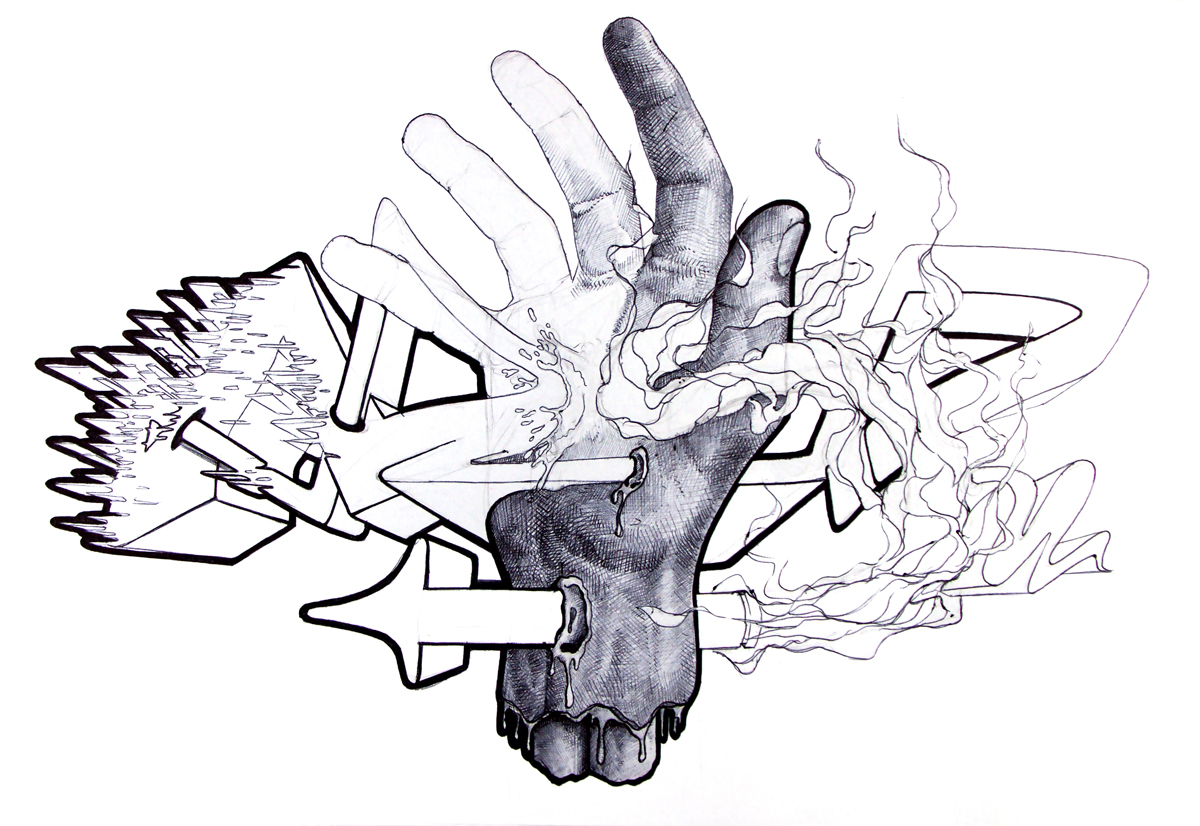
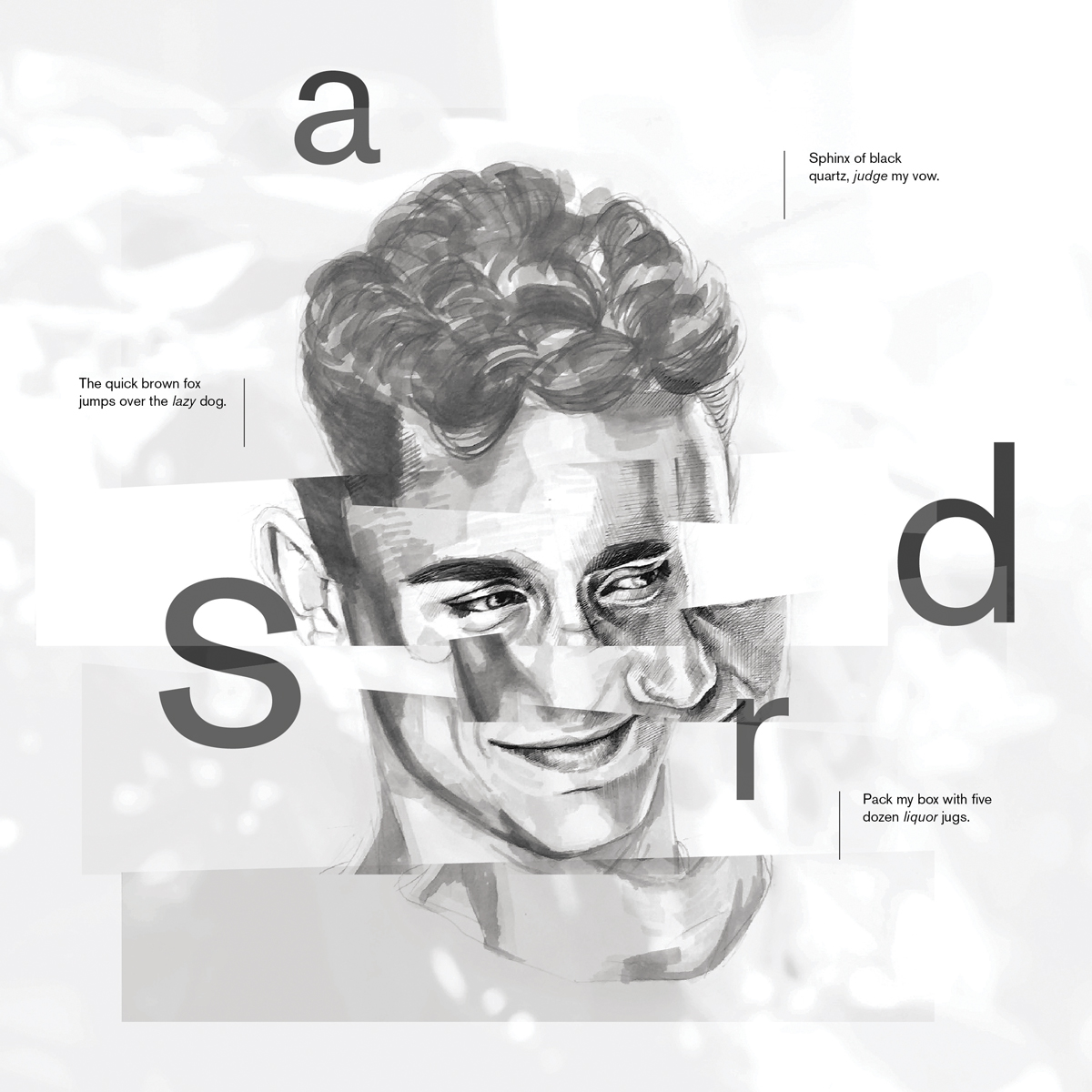
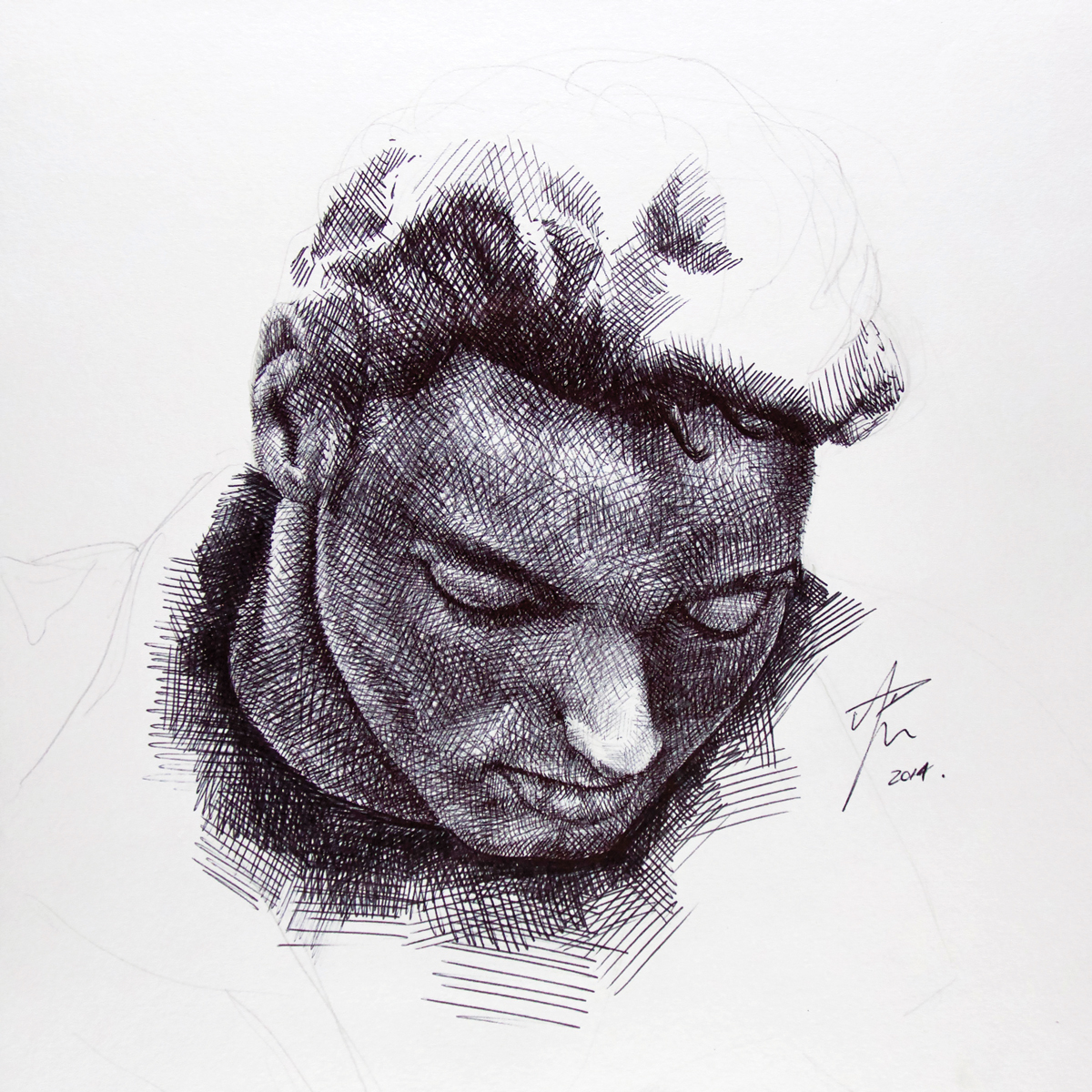
.jpg)
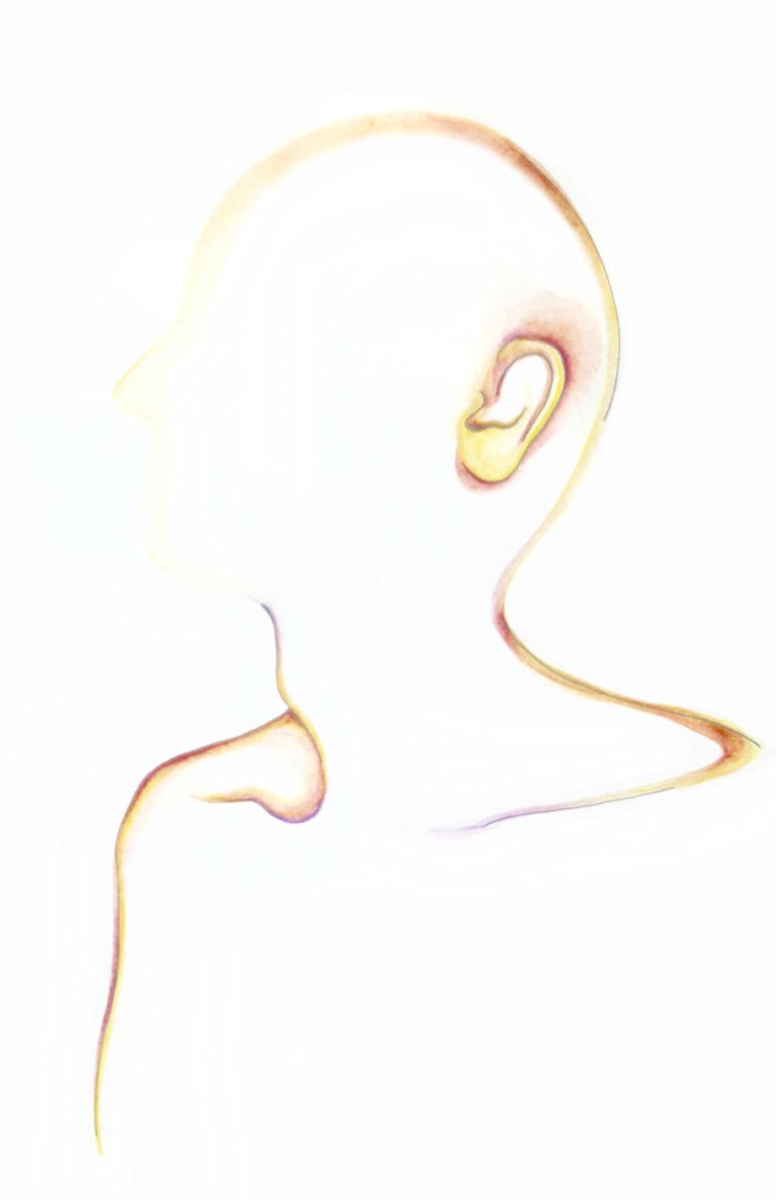
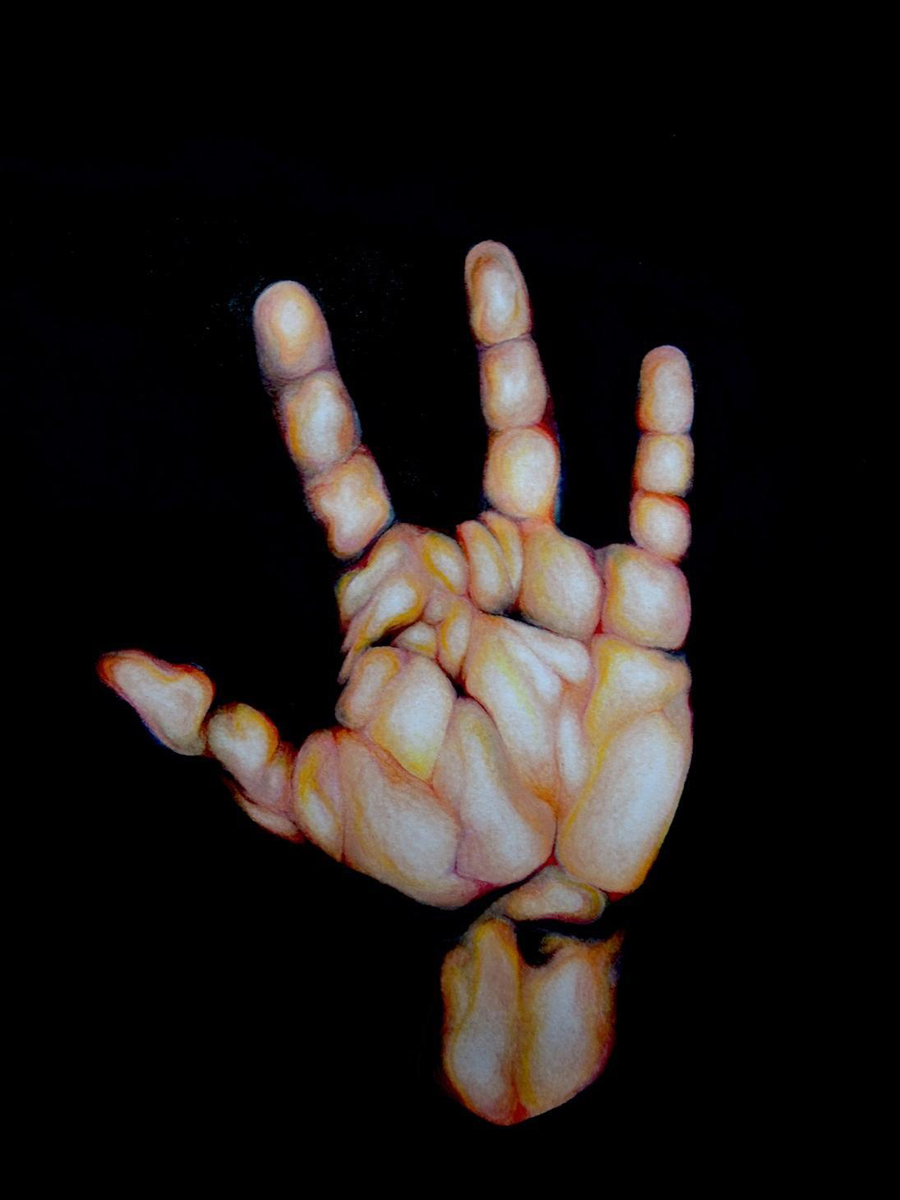
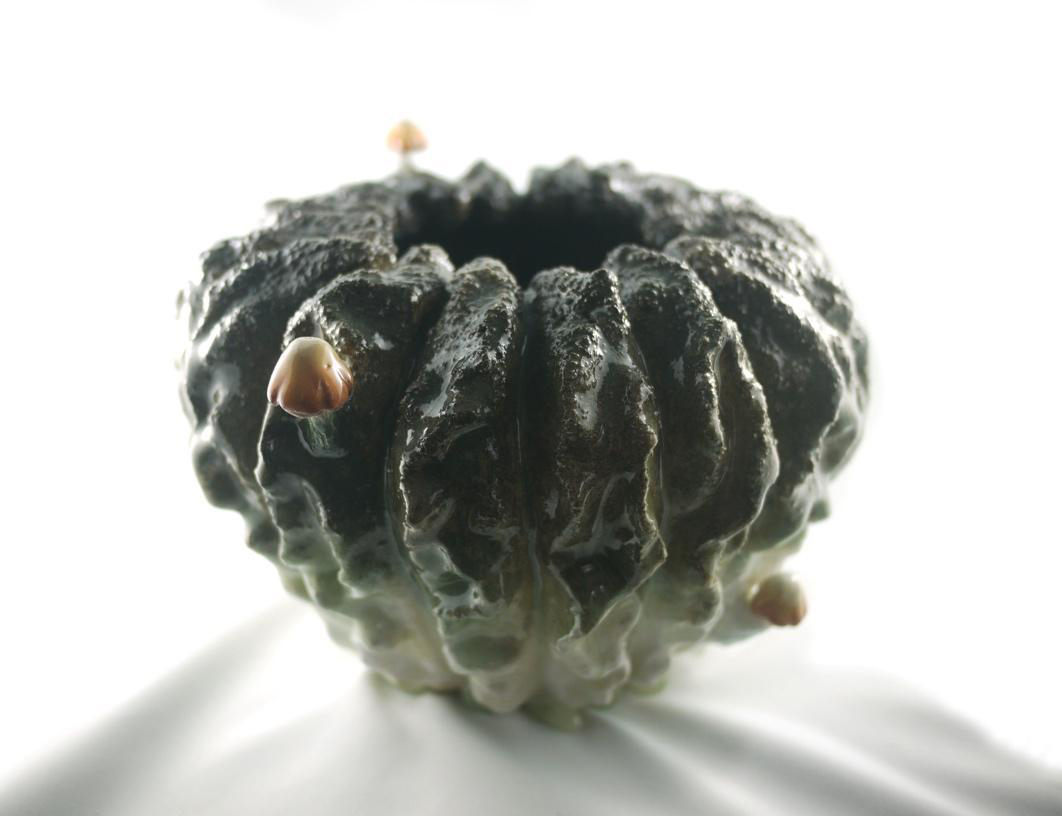
 in Kathmandu Nepal.jpg)
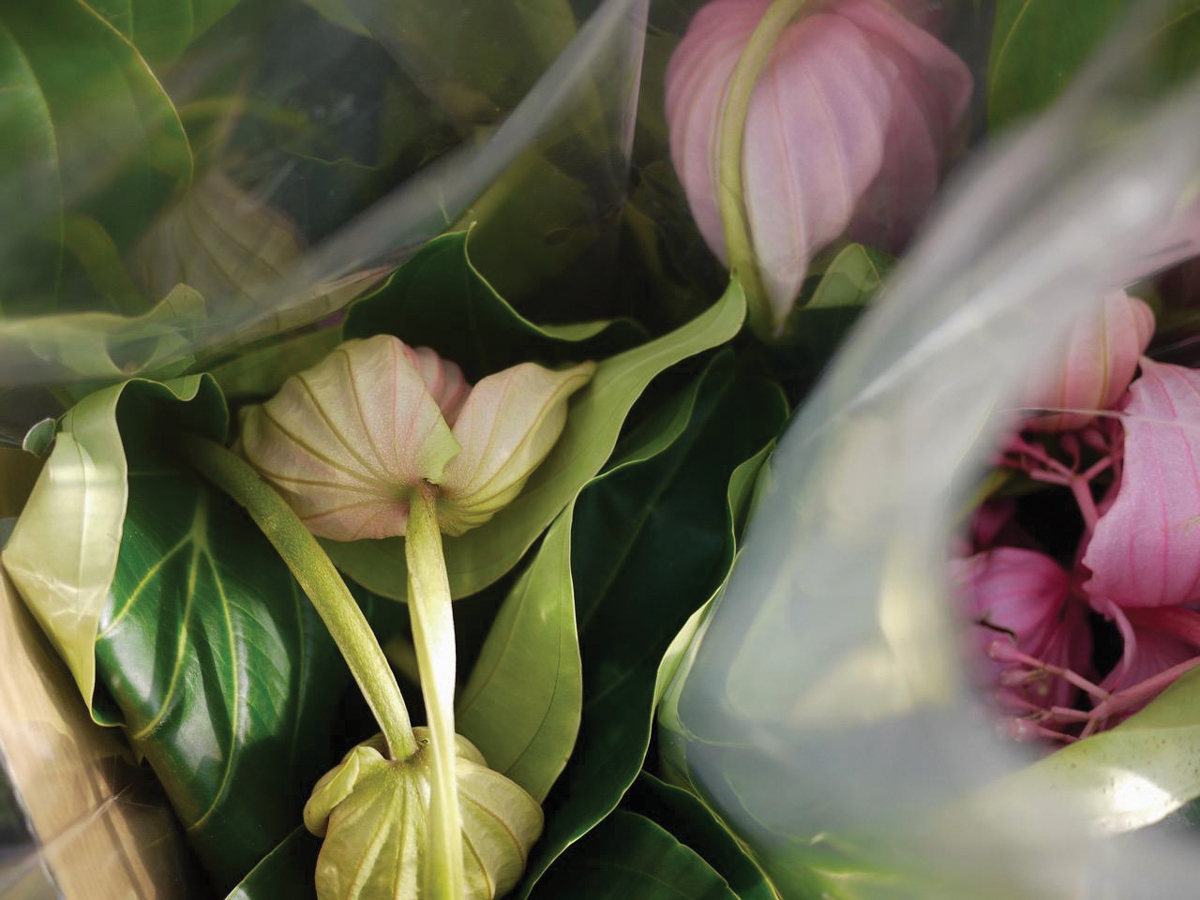

.jpg)
.jpg)
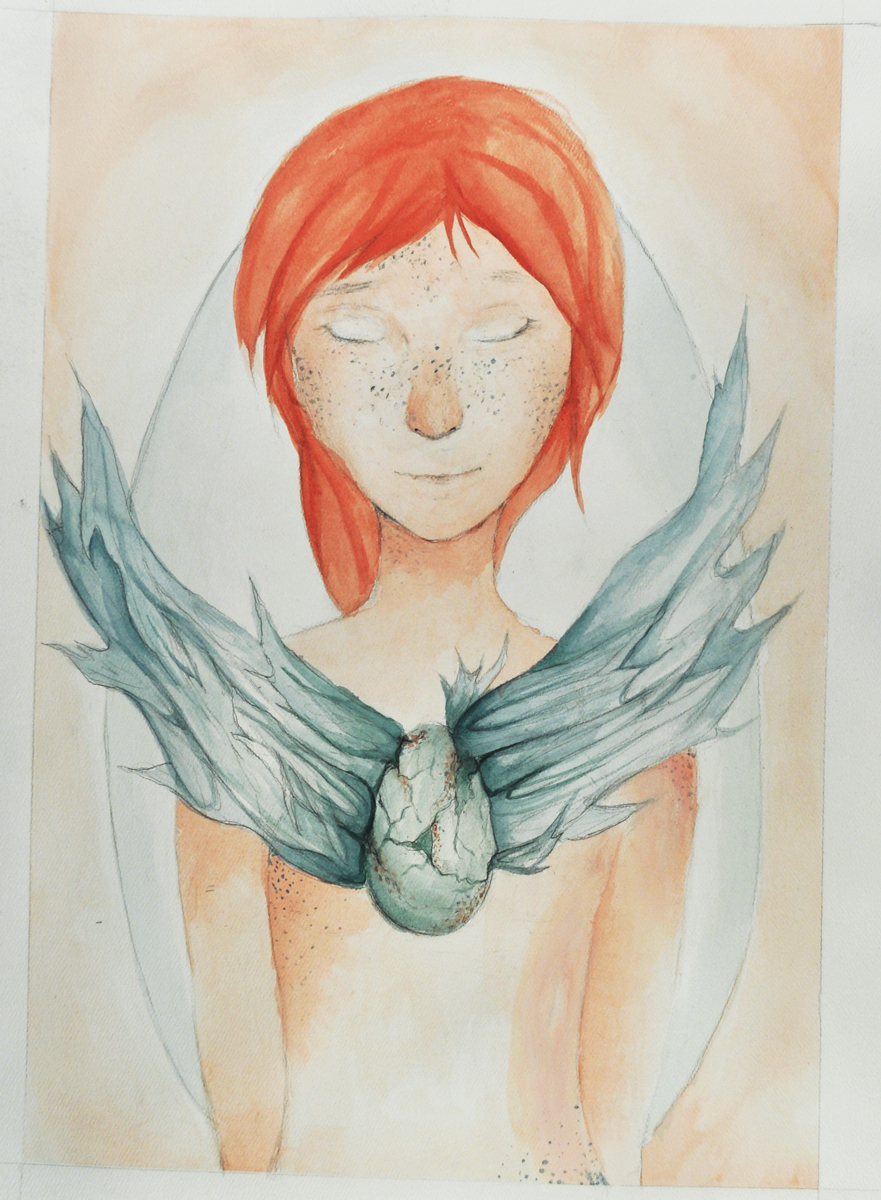
.jpg)
